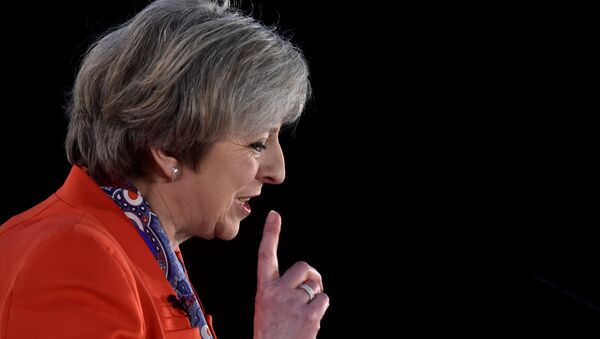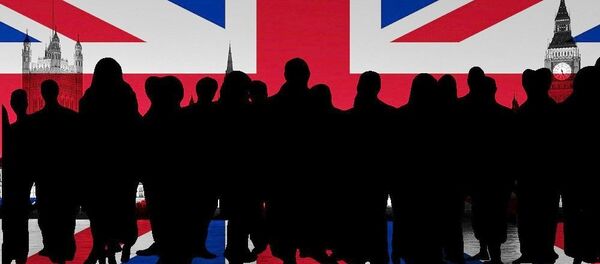As she announced the decision, the prime minister said she was seeking "unity" at Westminster, as talks on Brexit begin in earnest with the European Union.
"In recent weeks Labour have threatened to vote against the final agreement we reach with the EU, the Liberal Democrats have said they want to grind the business of government to a standstill, the SNP say they will vote against the legislation that formally repeals Britain's membership of the EU," May explained.
Steve Hedley, senior assistant general secretary of the Rail, Maritime and Transport Workers Union (RMT) in Britain, told Radio Sputnik's Brian Becker he doesn't believe that the decision has a lot to do with Brexit.
"The point is that Theresa May did not campaign for Brexit, she campaigned to remain within the European Union… That is a bit of camouflage, and a bit of cover for the decision, because if all her MPs were united behind her she would have a majority of 12 no matter what any other party did," he said during the Loud & Clear broadcast.
"Twenty of their MPs are facing possible charges for election fraud for spending too much on their electoral campaigns, so that may be another factor, but it's certainly about their own party."
Another possible reason Hedley mentioned was the "absolute disarray" and disunity in which the Labour Party currently finds itself — implying the rejection of Jeremy Corbyn by the Parliamentary wing of a Labour party "stuffed mainly by careerists and opportunists" — which he compared to the Clinton wing of the Democratic Party in the US.
"They'd rather see a Labour party defeated than the Labour Party be successful with Corbyn at the helm," he said. "I think it's very similar to what happened in America."
Labour leader Corbyn welcomed May's calls for an early election, however, saying it will "give the British people the chance to vote for a government that will put the interests of the majority first." He plans to target "rich" people earning more than £70,000 per year and big companies for higher taxes, while keeping the overall level of taxation in the economy roughly stable.
"The conservatives can always find money to go and bomb Libya or Syria or whichever other country in the Middle East that they happen to be attacking. But they can't find money for health service in this country, and I think what people need to do is focus on real issues."
With Brexit, a second Scottish independence referendum and the possibility of a coup against Corbyn looming, this election appears crucial to the future of the UK.



